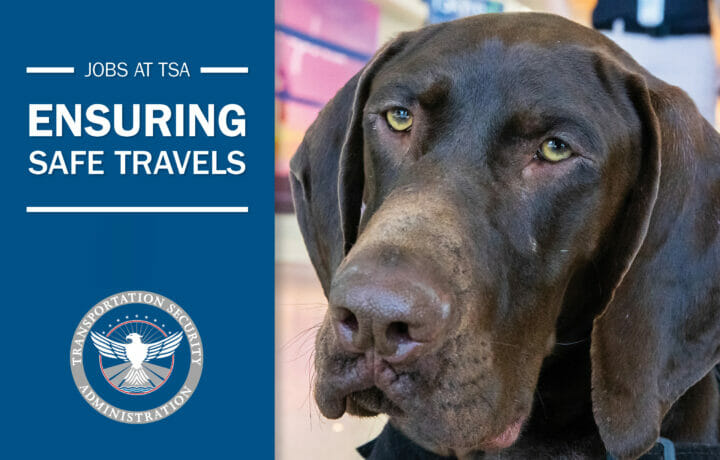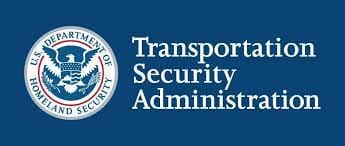Amber Chrobak joined the Army when she was 17 years old. “I decided to enlist before I graduated high school,” she said. “I knew military service could help fund my college education and I wanted to travel and see the world.”
After serving in Germany, deploying to Iraq, and training as a military working dog handler, Chrobak transitioned out of the military and earned both a bachelor’s degree and a master’s degree before deciding on a career within TSA’s Explosives Detection Canine Handler (EDCH) program. “TSA is one of the only agencies that hires canine handlers directly from the military. The TSA National Explosives Detection Canine Program trains and deploys both TSA-led and state and local law enforcement-led canine teams in support of day-to-day activities that protect the transportation domain.”
TSA Explosives Detection Canine Handlers secure transportation systems through explosives detection, visible deterrent and mobile response to airports, passenger terminals and other facilities. More than 1,000 TSA canine teams are deployed nationwide, tasked with screening passengers and cargo and supporting other security missions. Canine teams may also be deployed to support National Special Security Events (like the Presidential Inauguration, Super Bowl, Indianapolis 500, etc.).
“It’s so amazing, the small amounts of things these dogs can find. I’ve learned a lot of new skills to add to my toolbox since coming to TSA. My current partner, Finley, knows exactly what it means when I put on my uniform in the morning, and she is always happy to go to work,” said Chrobak. “It’s different every day. For the most part, I get to decide how my partner and I can be a better layer of security each day,” she said. “Passengers often stop to thank us for what we do to keep people safe,” said Chrobak. “It’s nice to be appreciated and know that what you do matters.”
Handlers are responsible for ongoing training with their dogs, but TSA provides resources such as training aids and support from experienced trainers. “We create training plans and work with our regional trainer to review,” said Chrobak. “TSA provides canine handlers with all the resources required to care for their partners, including food, healthcare and vehicles for safe transportation.” Chrobak acknowledges that “the job doesn’t end when you clock out of work; your dog goes home with you.”
Chrobak has shared her journey from the military to TSA and explains that camaraderie and team support are important themes in her career. About her team of handlers at Dulles International Airport, Chrobak said, “we do training simulations and practice together. We really rely on each other.”




